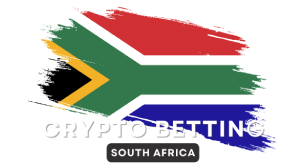Are you curious about NFTs and how they work in South Africa? Look no further than our Ultimate Guide to NFTs in South Africa. In this article, we’ll cover everything from what NFTs are, to how they’re being used in the South African market, and how you can get involved.


Non-fungible tokens (NFTs) are distinctive digital assets that cannot be duplicated or replaced. They symbolize ownership of digital items, including art, collectibles, music, or virtual real estate. NFTs are crucial as they present a fresh method for creators to profit from their digital content and give collectors an avenue to purchase and trade one-of-a-kind digital assets.
A significant aspect of NFTs is their provable scarcity, which is made possible through blockchain technology. Unlike conventional digital assets that can be easily copied, NFTs can be authenticated as unique and original. This enables creators to sell their digital content as limited editions while collectors can prove they own an authentic digital asset. In a digital world where content can be effortlessly reproduced, NFTs provide a solution to digital ownership and value.
NFTs are built on blockchain technology, a decentralized digital ledger that records all transactions across a network of computers. This technology guarantees the authenticity and uniqueness of NFTs, as each token has a unique identifier documented on the blockchain. Most NFTs are built on the Ethereum blockchain, which supports smart contracts – self-executing agreements that enable the creation and management of NFTs.
Smart contracts are essential in the NFT world, as they facilitate the creation, transfer, and sale of these distinctive digital assets. When a creator mints an NFT, they embed the digital content into a smart contract, which then assigns a unique identifier to the token. This identifier is stored on the blockchain, ensuring the NFT’s authenticity and ownership.
As NFTs change hands, the transaction is recorded on the blockchain, and the ownership of the token is transferred to the new owner. Smart contracts also allow royalties to be paid to creators when their NFTs are resold, making sure they continue to benefit from their work.
NFTs have the potential to revolutionize multiple industries by providing a new way to represent digital ownership and value. Here are some examples of how NFTs could make waves in different sectors:
1. Art and creative industries: NFTs enable artists to monetize their digital creations by selling unique, limited-edition pieces. This opens up new revenue streams for creators and offers collectors a way to invest in digital art. NFTs can also include royalties, ensuring artists continue to earn from their work even after it’s sold.
2. Gaming and virtual worlds: NFTs can represent in-game assets, such as characters, items, and virtual real estate. This allows players to buy, sell, and trade digital assets, potentially creating a new economy within virtual worlds.
3. Sports and entertainment: NFTs can be used to create digital collectibles, like trading cards or virtual merchandise. This offers fans a new way to connect with their favorite teams, athletes, and celebrities while providing a new revenue stream for sports organizations and entertainment companies.
4. Intellectual property and licensing: NFTs can represent digital rights to intellectual property, such as patents, trademarks, or copyrighted material. This could streamline licensing processes and provide a new way to monetize and manage digital assets.
5. Supply chain and provenance: NFTs can be used to track the provenance and ownership of physical goods, like luxury items or artwork. This can help combat counterfeiting and ensure the authenticity of products.
As NFTs continue to gain traction, their potential impact on various industries will become more apparent, providing new opportunities for creators, collectors, and investors alike. So, buckle up and watch as NFTs shape the digital landscape in ways we never thought possible!
NFTs have taken the world by storm, and South Africa is no exception! With a growing number of NFT marketplaces and platforms catering to South African users, it’s never been easier to dive into the world of digital art and collectibles. Here’s a rundown of some of the most popular NFT platforms available in South Africa:
Ready to join the NFT revolution? Here’s a step-by-step guide to buying, selling, and trading NFTs in South Africa:
There’s a whole universe of blockchain-based platforms and networks playing significant roles in the NFT space, offering unique opportunities for South African users:
With a clear understanding of the popular NFT marketplaces and platforms available in South Africa, as well as how to buy, sell, and trade NFTs, you’re all set to become an active participant in the digital asset revolution. So go on, dive in, and start exploring the fascinating world of NFTs!

It’s no secret that NFTs have taken the world by storm, offering artists and creators a groundbreaking way to monetize their work. And guess what? South African artists are hopping on the bandwagon, too! By tokenizing their creations, these talented individuals can ensure the uniqueness and scarcity of their work, allowing them to sell at a premium.
Several South African artists have made waves in the NFT space, showcasing the immense potential of this technology. Here are a few success stories worth raising a glass to:
While South African artists are making strides in the NFT space, they also face a few hurdles. Here’s a quick rundown of the challenges and opportunities they encounter:
In a nutshell, the NFT landscape in South Africa is a mixed bag of challenges and opportunities. By embracing this new technology, South African artists and creators can unlock new revenue streams, engage with global audiences, and make their mark in the digital art world. And who knows? Maybe they’ll even crack a joke or two along the way!

Like a newborn baby, the legal and regulatory framework for NFTs in South Africa is still in its infancy. It’s no different in many other countries too. Specific laws or regulations directly addressing NFTs are currently non-existent. However, don’t let that fool you! Existing laws and regulations governing digital assets, cryptocurrencies, and intellectual property rights may still apply to NFTs in various ways.
In 2020, the South African Reserve Bank (SARB) published a position paper on crypto assets, which you could say includes NFTs, since they’re built on the oh-so-popular blockchain technology. The paper proposed a regulatory framework for digital assets, covering registration and licensing requirements for service providers, anti-money laundering (AML) and combating the financing of terrorism (CFT) requirements, as well as consumer protection measures. A comprehensive package, right?
Additionally, the South African Revenue Service (SARS) treats cryptocurrencies as financial instruments. So, it’s not too far-fetched to assume that NFTs might be considered the same for tax purposes.
Since there are no specific tax regulations for NFTs in South Africa, taxation of NFT transactions would likely fall under existing tax laws applicable to digital assets and cryptocurrencies. Income generated from the sale of NFTs, whether you’re an investor or creator, would be subject to income tax. No one can escape the taxman!
But wait, there’s more! VAT implications may also arise from NFT transactions. Currently, the standard VAT rate in South Africa is 15%. However, as there is no specific guidance on the VAT treatment of NFTs, it remains unclear whether VAT would apply to the sale of NFTs, and if so, at what rate. It’s like a tax mystery!
So, if you’re a South African NFT investor or creator, it’s essential to keep detailed records of your NFT transactions, as you may be required to declare your income and pay taxes on NFT-related gains. Better safe than sorry!
As the NFT market continues to grow and gain prominence in South Africa, it’s likely that regulators will introduce specific rules and guidelines for NFTs in the future. This may include clarifying the tax treatment of NFTs, imposing registration and licensing requirements for NFT marketplaces, and setting out clear guidelines on intellectual property rights associated with NFTs.
Future regulations may bring both challenges and opportunities for the South African NFT market. On the one hand, increased regulation may provide more legal certainty and consumer protection, which could encourage further adoption and growth of the NFT market. On the other hand, stricter regulations could also impose additional compliance burdens on NFT market participants, potentially stifling innovation and discouraging new entrants. It’s a double-edged sword!
So, NFT investors and creators in South Africa, it’s crucial to stay informed about any changes in the regulatory environment and ensure compliance with applicable laws and regulations. This will not only help protect your interests but also contribute to the sustainable growth and development of the NFT market in South Africa. Knowledge is power!

As with any investment, NFTs come with their own set of risks and rewards. For South African investors, understanding these factors is crucial in making informed decisions. So, let’s dive into the world of NFTs and explore the potential risks and rewards.
One of the most significant risks of investing in NFTs is their volatility. The value of an NFT can fluctuate wildly in a short period, making it a high-risk investment. Additionally, the NFT market is still relatively young and unregulated, which can lead to scams, fraud, and lack of buyer protection. You could say it’s like the Wild West of the digital world!
On the other hand, NFTs also offer immense potential rewards. Many early investors in NFTs have made substantial returns, and some NFTs have sold for millions of dollars. NFTs provide a unique opportunity for South African artists and creators to monetize their work and gain international exposure. As the market continues to evolve, new opportunities and use cases for NFTs are likely to emerge. It’s like discovering a hidden treasure chest of digital assets!
To minimize the risks associated with investing in NFTs, it’s essential to build a diversified portfolio. Here are some strategies for South African investors to consider:
If you’re a South African looking to enter the NFT market, here are some tips and advice to help you get started:
By understanding the risks and rewards associated with NFTs and implementing a well-rounded investment strategy, South Africans can potentially benefit from this exciting and rapidly evolving market. So, put on your digital explorer hat and venture forth into the world of NFTs!

